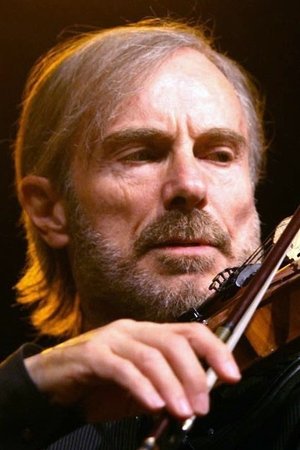Jean-Luc Ponty (b. 1942)
Birthplace:
Avranches, Manche, France
Born:
September 29, 1942
Jean-Luc Ponty (born 29 September 1942) is a French jazz violinist and composer. Ponty was born into a family of classical musicians in Avranches, France. His father taught violin, his mother taught piano. At sixteen, he was admitted to the Conservatoire National Supérieur de Musique de Paris, graduating two years later with the institution's highest honor, Premier Prix (first prize). He was hired by the Concerts Lamoureux in which he played for three years. While still a member of the orchestra in Paris, Ponty picked up a side job playing clarinet (which his father had taught him) for a college jazz band, that regularly performed at local parties. It proved life-changing. A growing interest in Miles Davis and John Coltrane compelled him to take up tenor saxophone. One night after an orchestra concert, and still wearing his tuxedo, Ponty found himself at a local club with only his violin. Within four years, he was widely accepted as the leading figure in "jazz fiddle". At that time, Ponty was leading a dual musical life: rehearsing and performing with the orchestra while also playing jazz at clubs throughout Paris. The demands of this schedule eventually brought him to a crossroads. Critic Joachim Berendt wrote that "Since Ponty, the jazz violin has been a different instrument". At first, the violin proved to be challenging; few at the time viewed the instrument as having a legitimate place in the modern jazz vocabulary. With a powerful sound that eschewed vibrato, Ponty distinguished himself with bebop phrasing and a punchy style influenced more by horn players than by anything previously tried on the violin. In 1964, at age 22, he released his debut album, Jazz Long Playing. He performed on stage in Basel, Switzerland, with string players Stuff Smith, Stéphane Grappelli, and Svend Asmussen. The performance was released as the album Violin Summit (1966). John Lewis of the Modern Jazz Quartet invited Ponty to perform at the Monterey Jazz Festival in 1967, which led to a recording contract with the World Pacific label and the albums Electric Connection (1969) with the Gerald Wilson Big Band and Jean-Luc Ponty Experience with the George Duke Trio (1969). That year also brought Sunday Walk (1967), the first collaboration between Ponty and Niels-Henning Ørsted Pedersen. In 1969, Frank Zappa composed the music for Ponty's solo album King Kong: Jean-Luc Ponty Plays the Music of Frank Zappa (World Pacific, 1970). In 1972, Elton John invited Ponty to contribute to his Honky Chateau (1972) album. At the urging of Zappa and The Mothers of Invention who wanted him to join their tour, Ponty emigrated with his wife and two young daughters to the United States and made his home in Los Angeles. He continued to work on a variety of projects – including two of John McLaughlin's Mahavishnu Orchestra albums Apocalypse (1974) and Visions of the Emerald Beyond (1975) and tours until 1975, when he signed with Atlantic. ... Source: Article "Jean-Luc Ponty" from Wikipedia in English, licensed under CC-BY-SA 3.0.





